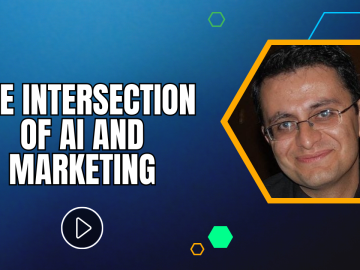With the hype around generative AI (GenAI), there is an increasing demand to explore its capabilities across pharma and MedTech companies, as well as contract research organisations.
While examples of generative AI applications in drug discovery are well-known in the industry, with success stories from Insilico and Takeda Pharmaceutical, its adoption requires significant investments in personnel training, data governance, and solution development. Yet, some use cases can be more easily applied to almost every clinical trial organisation.
This article outlines some practical GenAI use cases in clinical trials and discusses the most popular concerns surrounding this technology.
Potential of Gen AI in clinical trials acceleration
The process of developing a new drug can take up to 12 years and cost an estimated $2.3 billion, and yet 90% of clinical trials fail. The reasons for this are often poor patient cohort selection, recruiting tactics, and insufficient infrastructure.
Generative AI can help conduct faster, better-optimised clinical trials and potentially increase efficiency across various areas.
Clinical trials design
Scientists spend hundreds of hours gathering data and extracting information from various sources such as patients, scientific publications, and trial documents, leading to inaccuracies and inconsistencies due to the manual nature of the work. GenAI can streamline this process by efficiently handling large volumes of structured and non-structured data, potentially increasing the initial assessment of drug targets by up to 30%.
Patient eligibility
Generative AI can support decisions about a clinical trial’s target patient population by enhancing subgroup discovery, refining trial eligibility criteria, and helping remove patients who are highly unlikely to benefit from the treatment. It can also improve the experience of participants by mapping patients’ anamnesis to the clinical design documentation.
Personalised engagement
With capabilities of content generation, GenAI can be helpful in these areas:
- Patient recruitment – by producing personalised recruitment scripts for investigators.
- Improved patient engagement during clinical trials – by providing tailored customer support, such as chatbots or helpdesks. This can potentially result in a 5-10% decrease in patient drop-offs.
- Marketing around clinical trials and products – by creating marketing materials and reducing costs by 30-50%.
Knowledge processing
Addressing questions from subjects and health authority requests about various aspects of the study requires significant effort from the clinical trial organisation’s team. This includes extensive document review and formal answer preparation, which is usually a time-consuming process that AI-based solutions can easily automate.
Imagine a proprietary ChatGPT trained on your clinical trial design data and internal organisational knowledge base – this is what it may look like. Such a solution can help screen incoming requests, digest relevant content, and even produce the first draft of an answer so medical teams can respond more rapidly, using a broader base of scientific evidence.
Generative AI models can also dramatically reduce the time needed to craft technical and scientific documents by creating medical information request responses, scientific reports, and lay summaries. Moreover, GenAI can democratise access to internal knowledge within your organisation, based on previous clinical trials.
Documents creation
Generative AI allows healthcare organisations to quickly draft documentation required to establish new test sites using previous examples of clinical trial protocols, site contracting agreements, and clinical report forms.
Another example can be a clinical investigation plan (clinical study protocol; clinical trial protocol). It is a key document to reference while conducting the study, containing a comprehensive description of all aspects of the clinical trial, and requires significant time and effort to prepare. Generative AI can significantly accelerate this process.
Preparing consent forms for trials can also be optimised with AI. The form is usually based on a protocol document and should be written in plain text to be clear for the intended audience, sometimes for children. Consent form creation is a time-consuming but straightforward process, so it is also a good candidate for automation with generative AI.
Regulatory submission and monitoring
Submission writing is the final step before regulatory review, and it should be done as quickly as possible to accelerate launch timelines. Drafting clinical study reports typically requires eight or more weeks to complete. Generative AI-based tools can cut this time almost in half by generating an “80% right” first draft using the underlying protocol, statistical analysis plan, and other figures — within minutes instead of days, accelerating regulatory submission by 40%.
Common concerns about generative AI
While GenAI offers great potential for healthcare practitioners, there are also some valid concerns voiced in the industry.
Accuracy
LLMs are sadly known for hallucinations – presenting false information, static knowledge (giving out-of-date or generic information when a user expects a specific, current response), or creating an answer from non-authoritative sources. This raises concerns about the applicability of the technology, especially in highly regulated industries like healthcare and life sciences. To address this issue, the model is typically extended with an additional knowledge base specific to the organisation to make information dynamic and relevant. This means that adapting models to a company’s internal knowledge base and use cases requires additional iterations and investment to achieve accuracy.
Based on our experience, we recommend treating generative AI solutions in healthcare and life sciences as the fail-fast path. Fortunately, it is possible to trace the GenAI’s conclusions based on the data provided and easily see where wrong conclusions were made.
Another general recommendation would be not to make generative AI the final decision-maker; it should instead accelerate decision-making by human workers.
Data privacy and compliance
Addressing privacy concerns, all leading LLM providers state they do not use private data to retrain the models. There are also successful implementations of architectural blueprints for generative AI solutions that guarantee data privacy and compliant data processing under HIPAA and GDPR.
Yet, as foundational models typically include large volumes of public internet-based data, the risk of non-compliance for healthcare and life sciences companies still exists, as data privacy regulations surrounding patients’ medical data are exceptionally stringent. For example, many countries require this information to remain on domestic servers.
To stay compliant, businesses using foundational models need proper guardrails, such as training models on their own intellectual property and writing IP protections into contracts with external vendors.
ROI is not evident
You can find some very optimistic predictions about the business outcomes of generative AI solutions on the internet. However, while its potential to boost productivity and reduce costs is certainly high, there are a few constraints business decision-makers should keep in mind:
- The first iteration of a GenAI solution with acceptable performance can be achieved within one to two months, provided there is proper expertise within the company or technology partner.
- To further improve accuracy and performance, the application will typically need a significant development effort (usually at least two months) and expertise, as well as access, to the organisational proprietary data.
- The operational expenses on the foundational model should be considered and calculated based on the amount of data. Typically, businesses only calculate investment costs for building a solution or partner services, yet, depending on the amount of data, such costs can be significant.
Generative AI can significantly enhance various areas of clinical trials, including data gathering, patient engagement, knowledge processing, and document creation. Despite legitimate concerns about it among healthcare professionals, continual refinement and ongoing supervision can help mitigate potential risks. With expert oversight and proper implementation, GenAI can significantly increase the efficiency of clinical trial organisations.




